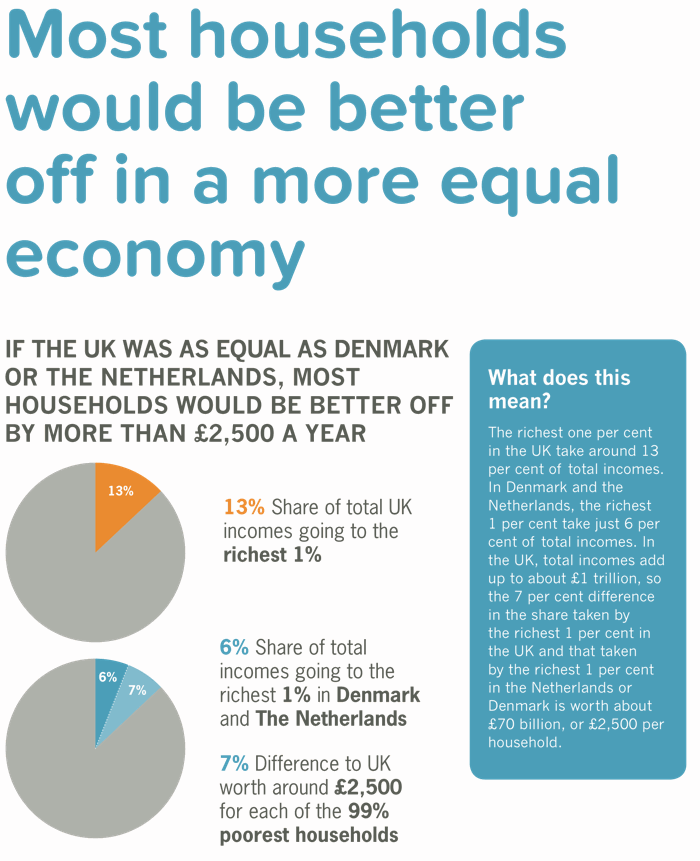Briefing • 19 September 2014
Briefing 45: Households would be better off in a more equal economy
Reducing the share of total UK income going to the richest 1% to Dutch or Danish levels & sharing the difference across the rest of the population would be worth an extra £2,500 a year to every household

To download the full pdf, click here
Explaining the data
All figures for the share of the richest 1 per cent, plus the UK’s estimated total income, are taken from the World Top Incomes Database via http://topincomes.parisschoolofeconomics.eu.
Of course, if measures were introduced to reduce the share of income going to the richest 1% in the UK, then the £1 trillion total income might also change. But the fact that the share of incomes going to the richest people is much smaller in other modern, prosperous societies like Denmark and the Netherlands suggests that inequality is not a necessary price of economic success. In fact, research from the International Monetary Fund suggests that inequality hinders economic growth (you can read their paper at http://www.imf.org/external/pubs/ft/sdn/2014/sdn1402.pdf). The benefits of reducing the share of UK incomes going to the top 1% maybe worth even more than £2,500 per household.
Tagged under: income inequality, international comparisons, living standards
Don’t miss out – subscribe to our FREE weekly briefing.
Recent briefings
- Briefing 65: Privately educated children earn more than state-educated children with the same grades
- Briefing 64: There are more disadvantaged children in Britain than in many other advanced economies
- Briefing 63: Reducing inequality doesn’t harm the economy
- Briefing 62: Rising inequality has reduced the UK’s economic growth
- Briefing 61: Regional inequality in the UK is the worst in Western Europe




